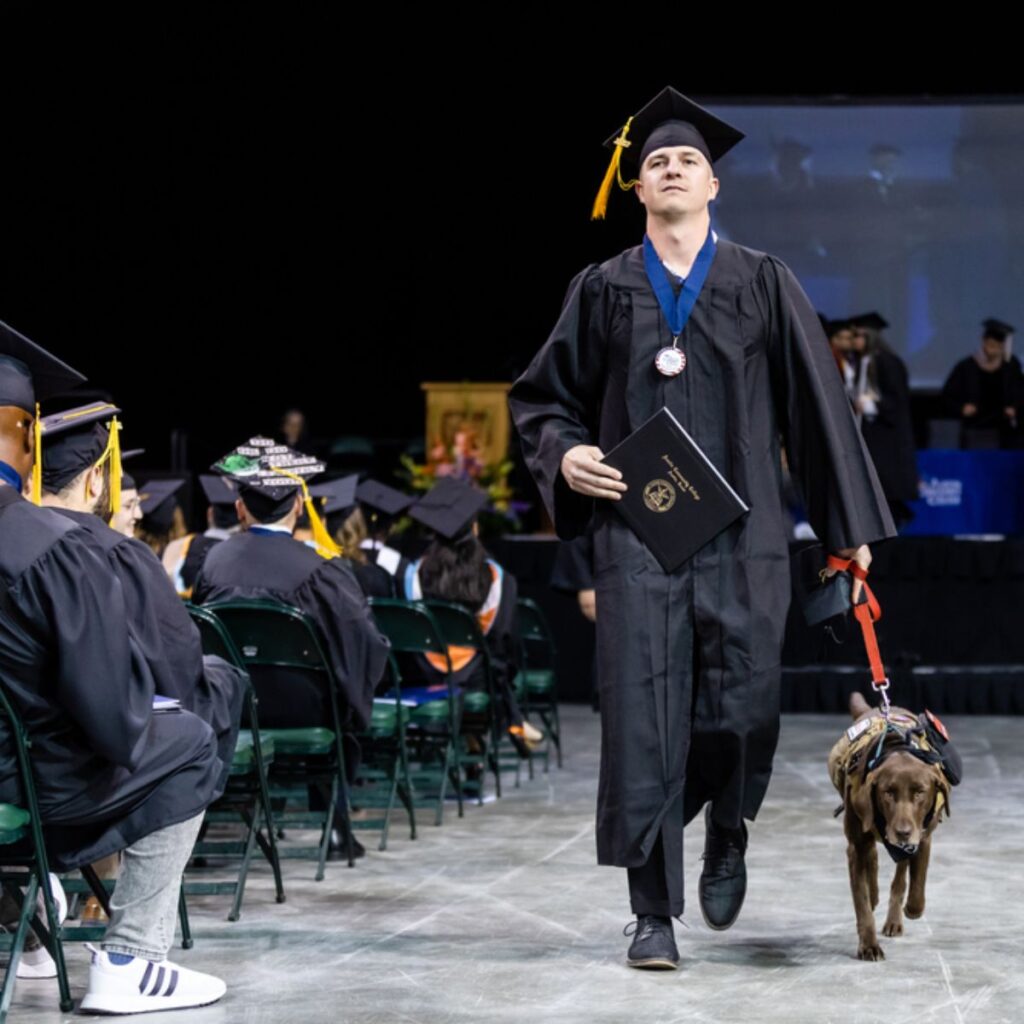Veterans face a number of challenges after serving in the military. Returning to civilian life can be a difficult adjustment. Soldiers may suffer from PTSD and physical injuries that can present barriers to success. Fortunately, veterans have access to resources that can help them navigate these challenges. These include student support services for soldiers who want to get a degree.
What do veterans need to successfully transition into the college and degree plan of their choice?
In this Article
Veterans Tip 1: Make a plan
Experts from the Veterans Administration and other services advise veterans to start planning before they leave the military. Soldiers can access military transition services while in the service that will help them identify transferrable skills, apply for a civilian job, access housing, and more.

Soldiers who plan to go to college should identify what degree programs they’re interested in. Ask yourself:
- What are my interests? These can be based on military training or hobbies or other sources.
- What are my skills and how do they translate to civilian jobs? A military skills translator can be handy.
- What are the colleges in my area/where would I want to go? There are a lot of factors that go into choosing a college, especially for veterans.
Examples of translatable skills include:
- Military simulator experience can lead to videogame design and development.
- Language training could spark a career in international business.
- Equipment inventory and management can easily apply to logistics and supply chain management.
Veterans Tip 2: Reach out to college support services
Schools that have veterans services understand the needs of their military students and their families. They can help veterans navigate the GI Bill, for instance, or the Texas Hazlewood Act. College veterans services help students and prospective students understand how to put together a degree program plan that meets your goals and the requirements of the GI Bill.
Other veteran support services help students with:
- Financial aid, scholarships, and grants
- Military transcripts
- Community support services
- Active duty and deployment for reserves and active military
- Changes in degree plans and majors
- Academic and VA advising services
Veterans Tip 3: Create connections
Veterans are part of the growing non-traditional student population. At many universities, vets and active-duty military may feel as if they have little in common with their classmates who may be younger and/or lack a military perspective. Colleges with strong veteran services programs can help vets successfully bridge these gaps. They provide a network of other veterans on campus and assistance with the types of specific challenges that vets may face.
It’s also important to join clubs or interest groups. These connections can help veterans make the transition into civilian life and increase the feeling of belonging.
Ready to build on your military career? Try ACC
Austin Community College Veterans Services Center is ready to help veterans build on their success in the armed forces. Explore our degrees and certifications, and see how ACC can lead to a new career.
Tags: ACC, Austin Community College, veterans, Veterans Services Center
Back to Top
